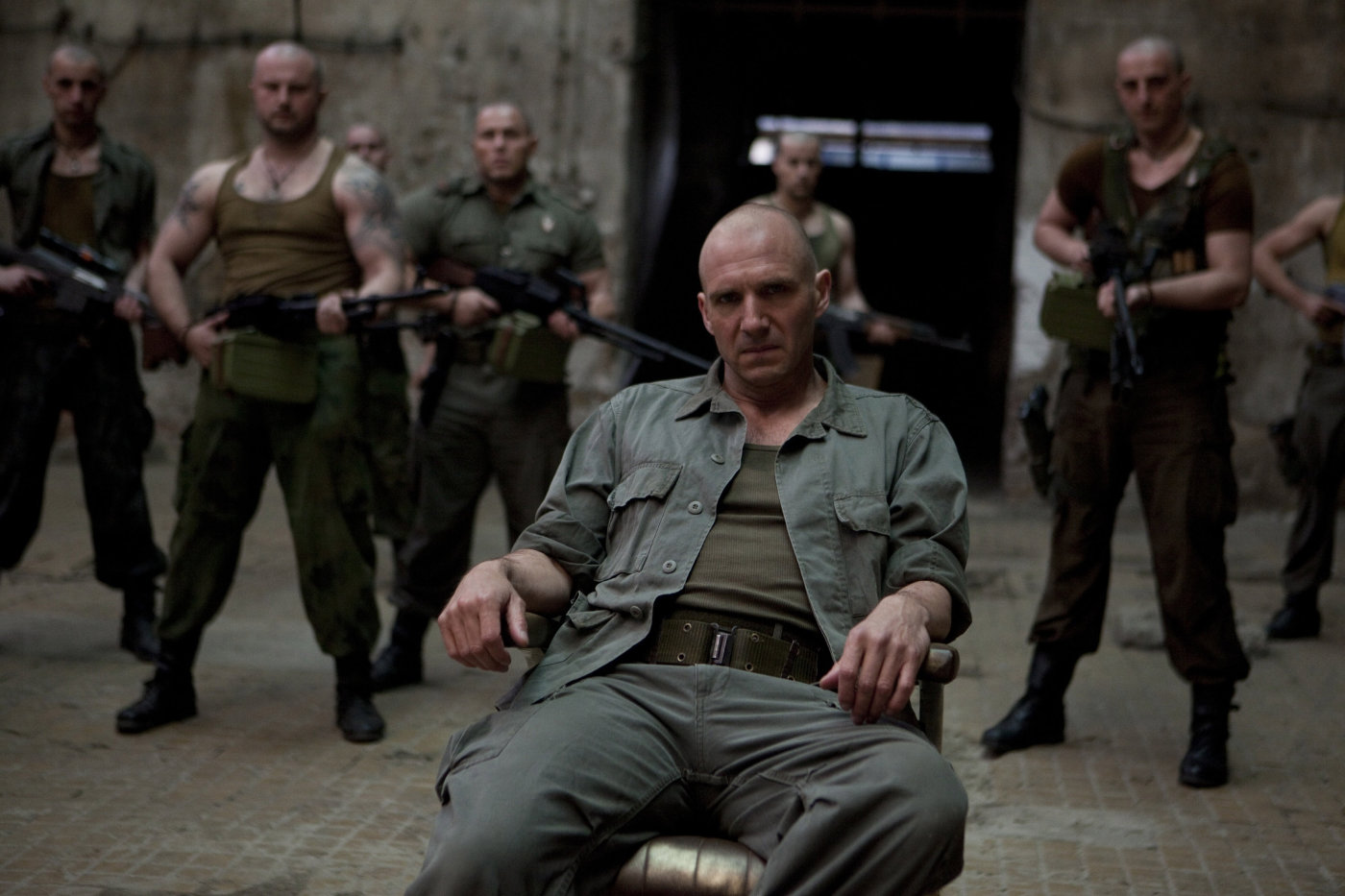A contemporary restaging of one of Shakespeare’s more obscure plays has a frightening resonance for modern audiences.
[stextbox id=”grey” caption=”Coriolanus (2011)” float=”true” align=”right” width=”200″]
Director: Ralph Fiennes
Writer(s): William Shakespeare, John Logan
Runtime: 122 minutes
Starring: Ralph Fiennes, Gerard Butler, James Nesbitt, Brian Cox, Jessica Chastain, Vanessa Redgrave
Distributor: Icon
Country: UK
Rating: Highly Recommended (?)
[/stextbox]
If William Shakespeare was alive today, he’d be the highest paid screenwriter in Hollywood’s history, churning out everything from rom-coms to epic wartime biopics. The playwright who has been dead for almost four centuries has inspired well over four-hundred feature-length film adaptations of his works. Some of these are standards that get trotted out every few years: Hamlet, Richard III, Macbeth and, of course, Romeo and Juliet. Despite this strong fascination that the world still seems to have with the Bard, there are those plays that just don’t get performed as much as the more famous works. Now the more obscure Coriolanus joins the ranks of Titus (Andronicus) and Love’s Labours Lost thanks to director and star Ralph Fiennes.
In an empire calling itself Rome, the people are restless at having stores of grain withheld from them. Most of them blame Caius Martius (Ralph Fiennes), who is openly contemptuous to the masses. While Menenius (Brian Cox) placates the masses, Brutus (Paul Jesson) and Sicinius (James Nesbitt) privately denounced Martius. When the latter hears of the Volscian army in the field, he is soon off to combat. Caius is awarded the title of Coriolanus for his bravery in fighting Aufidius (Gerard Butler), the Volscian leader, and his mother Volumnia (Vanessa Redgrave) urges him to parlay this recognition into a run for the office of consul. However, he soon finds himself up against a sea of populist aggression.
The lack of performances and adaptations of Coriolanus to date are undoubtedly due to how unsympathetic the central character is. Unlike other Shakespearean tregedies, we are offered no soliloquies or monologues to peep inside the mind of this very complex character. He is openly contemptuous to the masses, but also a fierce defender of the kingdom. He seems reluctant to accept praise, but has no issue in publically airing his negative views. He is a strong military man able to be manipulated by his mother. All of this amounts to an incredibly difficult character to pin down, but Fiennes in his role as director, producer and star manages to make the figure one worthy of the canon. Above all things, he is a character with a high standard for himself that he remains true to above all things. “Would you have me false to my nature?,” he asks. “Rather say I play the man I am”. Yet as noble and complex a character as this it, he may prove an impenetrable barrier for some.
John Logan has already had a terrific run in 2011 with his screenplays for the Academy Award winning films Rango and Hugo, and with Coriolanus he continues to show his versatility. Restaging the film in the battlefields of the 21st century, Logan and Fiennes’ Coriolanus is a study of modern warfare and politics, a stunning achievement given that it maintains the original text. The play has been used over the years for various purposes, actually banned in France in the 1930s for being used by a fascist element. In a post-9/11 world, the play is reshaped to take on the power politics and popular perception in influencing the masses, and in shaping or destroying the destiny of the individual.
The performances are central to the success of this adaptation and Fiennes has gathered together an unquestionably impeccable cast. Unlike Julie Taymor’s casting of the recent The Tempest, which threw an eclectic cast mix at the film hoping some of them would stick, Fiennes’ carefully selected troupe all adds something to the film. This may be minor Shakespeare, but there are no minor roles here. Even the ubiquitous Jessica Chastain, who only has a small amount of screen time, brings a quiet dignity to Coriolanus’ wife. Nesbitt and Cox in particular give the supporting cast an authenticity, delivering 400 year old lines as though they were everyday speech. Yet it is Fiennes and Butler who command the screen, with the former only having to utter a few lines or stroke his shaven head with Colonel Kurtz megalomania to send shivers down your spine.
[stextbox id=”custom”]A fresh and lively take on this little-known Shakespeare marks a thrilling debut from Fiennes as a director, commanding this huge cast like a seasoned pro.[/stextbox]
Coriolanus is released in Australia on 8 March 2012 from Icon.






